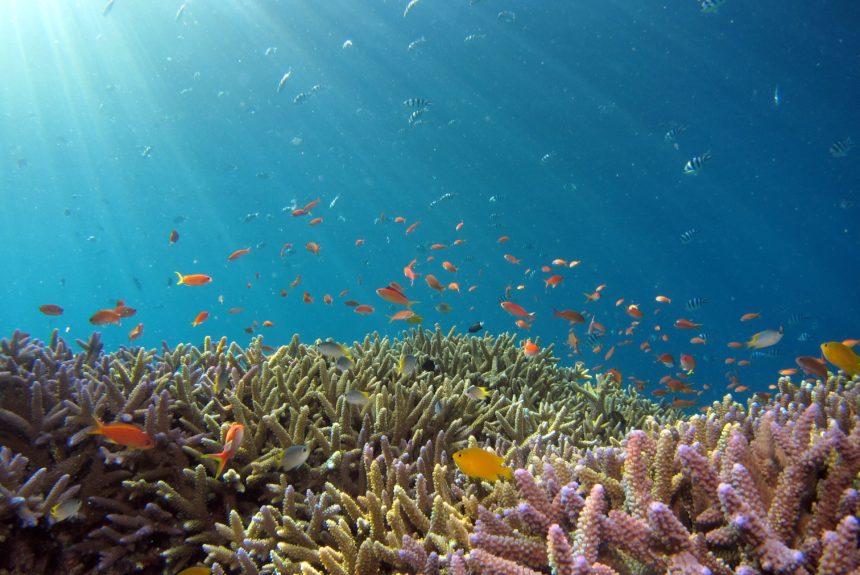Coral reefs are disappearing at an alarming rate. Between 25% to 40% of the world’s corals have already been lost in our lifetimes. Even worse, the coming two decades may see their numbers decline as much as 90%.
But one bold startup has a plan to save the world’s corals. Plant A Million Corals Foundation, led by Dr. David E. Vaughan, has pioneered a novel technique known as micro-fragmentation to bring century-old corals back to life. The process – which takes place at an unusually rapid rate – involves cutting coral into tiny fragments to stimulate the organism’s natural healing mechanisms and growth channels. This technique enables the coral to grow 25 times faster than normal. The procedure is a breakthrough discovery in the field of coral reef restoration, which until recently focused exclusively on restoring fast-growing branching corals, but neglecting the slower-growing but massive ‘reef-building’ species like boulder and brain corals.
Scientists and amateur aquatic enthusiasts have long known that branching corals will grow back if snapped off, but the same cannot be said for the reef-building species of coral such as Elkhorn. The development of these corals depends on sexual reproduction, not the asexual reproductive budding and “fragging” strategies typical of the shorter-lived branching species.
Vaughan stumbled on his “eureka moment” while transferring coral samples to the bottom of the aquarium during a research experiment. Vaughan accidentally broke off a piece of the coral, leaving three tiny polyps at the bottom of the tank. These polyps are the minuscule, soft-bodied sac-like animals that build the protective limestone skeleton that ultimately becomes a coral reef. Certain that the corals would not make it, he retrieved the severed sample and discarded it in another tank. When he decided to check on the sample two weeks later, he discovered – much to his surprise – that the splintered coral had regrown back to its original size. Shocked, Vaughan immediately rushed to check back on the original tank with the polyps. To his amazement, the tiny polyps had grown to the size of a dime. Growth that had previously taken two years had occurred in two weeks, offering a potential breakthrough for ecologists hoping to restore endangered reefs.
Hopeful from the discovery, Vaughan – then working at the Mote Marine Laboratory in the Florida Keys – implemented what is now called micro-fragmentation, or the strategy of cutting corals into the tiniest possible pieces to trigger the organism’s natural regrowing process. The results were astonishing. The procedure worked on all 26 of the species that Vaughan experimented on, paving the way for the methodology’s widespread use across the scientific community. The innovative approach uses a special cutting saw to break down corals into tiny pieces or individual polyps. Thousands of fast-growing “micro-fragments” can be produced as opposed to dozens.
>>>Running Tide Technologies: Farming Kelp to Fight Climate Change
Following micro-fragmentation, corals are placed next to each other in the lab. This close proximity enables the polyps to fuse back together and grow as one piece, as it does in nature. The process of coral fusion allows the seedlings to reach sexual maturity faster, speeding up spawning season for some species by as much as tenfold. Once the corals reach an ideal size, they are transplanted onto ailing reefs via portable Coral Restoration Units (CRUs) in a process known as “coral reskinning.”
Not only does micro-fragmentation and reskinning methodology stimulate rapid growth, but Vaughan’s restoration strategy also builds in resiliency. Scientists now screen strains for resistance to high heat, coral diseases, and acidification, ensuring only the most adaptive coral genotypes are integrated into the “restoration pipeline.” The goal is to restore corals that are resistant to today’s conditions.
“Disease is a chronic problem for corals, so we screen for disease tolerance as well as heat tolerance and ramp up the reproduction of those most likely to survive both in the coming decades,” says Mote senior biologist Erinn Muller.
So far, the Plant A Million Corals team has planted over 100,000 segments of coral along Florida’s reefs since 2019.
The 100,000 figure is “a combination of corals directly planted by the foundation and those trained by the foundation,” notes Vaughan.
The foundation has also sponsored reef recovery efforts in the Caribbean and Costa Rica. Vaughan is an advisor for several coral reef restoration organizations, including Coral Vita and Raising Coral Costa Rica. The latter has had significant success restoring branching coral species and massive micro-fragmenting boulder species along the Golfo Dulce on Costa Rica’s Pacific Coast.
Although they cover less than one percent of the ocean floor, coral reefs provide a rich habitat for thousands of species, including an estimated 25% of the world’s fish. Corals act as a natural buffer against storm surges and erosion, protecting infrastructure along coastlines. Coastal communities rely on the billions of dollars that eco-tourists spend when visiting coral reefs, particularly in underdeveloped areas like the Coral Triangle in the Western Pacific and the Mesoamerican Reef in the Caribbean. Finally, coral reefs are crucial for oxygen production, granting them the nickname “the rainforests of the sea.”
Vaughan’s innovative micro-fragmentation technology is now considered a powerful solution for global reef restoration. Before he retires, the 67-year-old scientist says he wants to plant one million corals.
Nathalie Voit is a freelance content creator and a graduate of the University of Florida. She is an alumni of The Heritage Foundation’s Young Leaders Program.
The views and opinions expressed are those of the author’s and do not necessarily reflect the official policy or position of C3.
